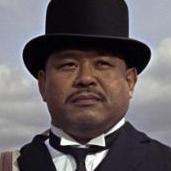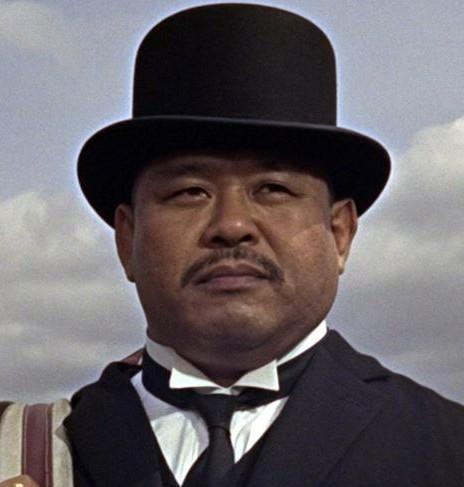-
Posts
12,924 -
Joined
-
Last visited
Content Type
Profiles
Forums
Events
Blogs
Everything posted by Teasing the Korean
-
Still totally diggin' Tentet! I appreciate the recommendation@
-

Radio still has the greatest reach.
Teasing the Korean replied to GA Russell's topic in Jazz Radio & Podcasts
That is one of the things I love about radio in a car. One station drifts out of range, as another arrives. -
Check out the tape delay on the pizzicato strings and snare drum!
-
Well, therein lies the problem with the phrase. If a jazz artist does an easy listening album, is it not an easy listening album? Lots of names associated with easy listening came from the worlds of classical, big bands, jazz etc. And many of them were not thinking in terms of genre, unless it was a work made for hire with certain parameters. They were simply trying to write nice arrangements. There was an awful lot of crossover between genres during that time. I think that when "easy listening" is used to describe the schmaltzy or corny orchestral music of that era, the better artists either get lumped in and dismissed, or overlooked. An album like Les Baxter's The Passions is in a completely different universe from Mantovani.
-
From the other end of the peppiness spectrum comes Stu Phillips's 1965 Capitol album Feels Like Lovin', which sounds as if it may have been intended as a Jackie Gleason album. It is lugubrious in a most irresistible way.
-
This was a favorite from my DJ days: I am obsessed with this track from 1961: "Image," a pop/orchestral/soul/jazz track, by Hank Levine.
-
May I present Henry Mancini's update of his classic "Lujon," a.k.a. "Slow Hot Wind," as arranged for his 1975 LP Symphonic Soul. When the strings come in at the second bridge, it is positively orgasmic.
-
Oh, there was lots of great orchestral rock/soul/funk stuff from the late 1960s/early 70s. It was great chill-out music, and there were usually no vocals to distract. Johnny Harris's Movements album is one great example, and based on second-hand prices, I must not be alone in this assessment. I would also highly recommend Percy Faith's Black Magic Woman album. I would add that a huge amount of this kind of thing was going on in film and TV scoring from the late 1960s and early 1970s, particularly in films with an urban setting. Some of those film score albums by the likes of Roy Budd, Lalo Schifrin, Oliver Nelson, Dave Grusin, Pat Williams, Quincy Jones, Jerry Fielding, Billy Goldenberg, Piero Piccioni, Piero Umiliani, are masterpieces of orchestral/funk fusion.
-
There's nothing fixed about that because pop music existed before rock - Cole Porter, Richard Rodgers, etc. - and the results lie in the quality of the material and the arranging. Not all orchestral pop music can be described as "watered down."
-
Why should orchestras be limited to playing western classical music? Why is the notion of orchestras playing pop music offensive to some people? I find pop music played by guitars and drums infinitely more boring than pop music played by an orchestra.
-

Pete Rugolo - Behind Brigitte Bardot - WB, 1960
Teasing the Korean replied to Teasing the Korean's topic in Recommendations
Listen to this gorgeous tune from this album: -
Yeah, that's a stumbling block for me with a lot of singers. I have read that, with aging singers, this is the result of calcium deposits on vocal chords, and that there are now therapies to remove the calcium and eliminate the wobble.
-
Yeah, I need that cover. I have only the Bad Bossa Nova version.
-
Listening to lots of Bacharach lately, I am struck by the fact that so many of his arrangement elements - countermelodies or brief interludes played by trumpet, marimba, etc. - have become a part of the tune for practical purposes, even though they are not part of the melody proper. Who could hum or whistle "Walk on Bay" without hearing that trumpet line under the title? This sort of thing became much more common in the rock era, because the songwriters were often involved in the arrangement and production of the record, and they would have a specific sound in mind. Songs, for better or worse, often became associated with a specific record and setting. This got me thinking about early examples of this kind of thing. During the Great American Songbook, when radio stations didn't play records, a listener may have experienced a hit tune in a variety of treatments - vocal, instrumental, jazz, latin, etc. - and the song was less tied to a specific arrangement or production. The earliest example I can think of is "Goodbye" by Gordon Jenkins, with those instrumental lines answering the vocal melody in the stanzas. It is nearly impossible to think of "Goodbye" without hearing those answering phrases. Are there any similar early instances of this kind of thing?
-
I would have to bring Bad Bossa Nova, aka Jungle Soul, because it would pair better with coconut milk and pineapples than my other Gene Ammons albums.
-
I agree, and much of the best exotica does some of both, including this one. Either way, I will continue to file this album in the exotica section and listen in the summer while drinking rum. I also will continue to blast jungle animal sounds on my Bose docking station while playing this LP, which reinforces the exotica elements.
-
I totally consider this to be an exotica album, in that it presents music from one culture as filtered through the prism of another. I file it in the exotica section, and I listen to it only in the summer, when I drink rum.
_forumlogo.png.a607ef20a6e0c299ab2aa6443aa1f32e.png)
